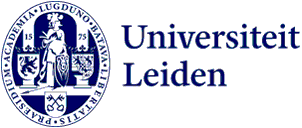
New round of The Hague Southwest Thesis Project
With their thesis research, Master’s students from Leiden, Rotterdam and Delft help solve real-world problems in The Hague Southwest. That is the aim of the Thesis Project. We spoke to two students who are participating in the project.
In the Thesis Project, Leiden, Rotterdam and Delft students from various disciplinary backgrounds carry out fieldwork in The Hague Southwest. The municipality of The Hague or residents of the district list specific challenges that the district is facing. The master’s students take up the challenge: they have three months to conduct research, write a thesis and deliver a product to help citizens and municipalities solve the problem. At the kick-off meeting on Thursday 24 March 2022, the LDE students had the chance to get to know one another, their contacts at the municipality and the residents of The Hague Southwest.
‘It’s good to be able to deliver work that is useful to others.’
Fleur Groenevelt (studying Management of the Public Sector, Leadership specialisation)

Research question: : ‘How can connecting leadership from citizens’ initiatives help balance conflicting public values?’
‘The Moerwijk neighbourhood submitted a question to the thesis project on how conflicting interests between citizens and the municipality can be reconciled. I still have to find out more about the specific situations this relates to, but it could be the municipality’s current redevelopment of the neighbourhood, which involves new houses and buildings being built. The residents can see the municipality making decisions from an economic perspective when they base their decisions on a social perspective. “Connecting leadership” is a leadership style in which administrators give all stakeholders a voice during a policy process, for example through a forum. The administrators don’t just advise but also propose solutions themselves. At the end of the programme, in three months’ time, I have to submit a thesis and a product, such as advice to the municipality and district on using connecting leadership, or a workshop about this.
‘The kick-off meeting was promising at any rate. I spoke to municipal officials and local residents, for instance, who can help me make the right contacts. As it is, I am enthusiastic about the thesis project as an initiative. The University is often quite theoretical, so it’s great for students to be able to produce work that is useful to others.’

‘Looking over citizens’ shoulders’
Mark van der Sar (studying Public Sector Management, Leadership specialisation)
Research question: ‘How does connecting leadership influence the effectiveness of citizen participation in budget processes?’
‘It’s quite a mouthful, my research question. It’s about citizens who have a plan and apply for a grant for this from the municipality. Residents of various neighbourhoods in the Southwest district could use more knowledge about municipal processes when making such an application. After all, the better you know these processes, the better your application will be and the greater the chance of a citizens’ initiative receiving a grant. In two projects, I will be looking over citizens’ shoulders as they write applications and will advise them on how to improve their applications. The applications I will be researching focus on mobility transitions in the neighbourhood, such as improving a cycle path or creating more parking spaces.
The practical side of the thesis project really appeals to me; I like being able to set to work on such a concrete research project and to come into contact with people you can help. It’ll be a bit stressful too because in principle I only have a month to collect all my data, which will mean a lot of hard work.’
The theses for this thesis project will have to be finished by 1 June 2022. There will also be a final meeting where the students will present their ‘products’ to citizens and the municipality.
Text: Jan Joost Aten
